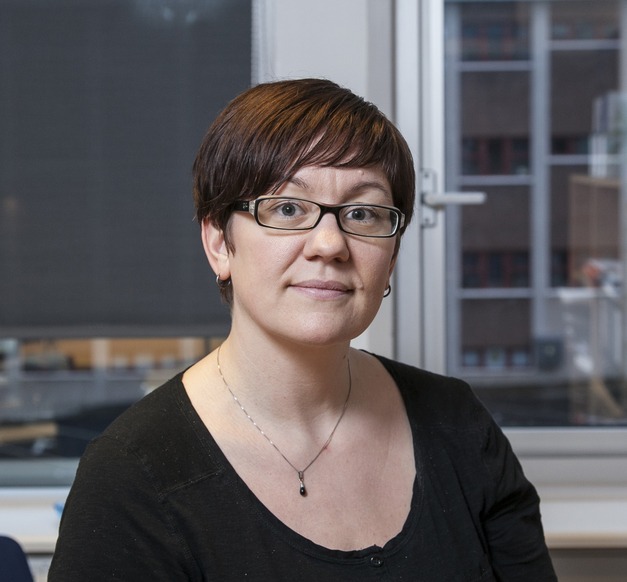Elín Júlíana Sveinsdóttir, MA student at the Faculty of Social and Human Sciences
"I wanted to gain an insight into how Polish women experienced their own position in Icelandic society, both while they were unemployed and afterwards," says Elín Júlíana Sveinsdóttir, student counsellor at Mímir-símenntun. Her work with immigrants sparked her interest in researching their circumstances in more detail in her studies at the University of Iceland.
The economic collapse in 2008 led to high unemployment, particularly amongst immigrants. There was a lot of discussion in Icelandic society of the number of immigrants in the building industry and unemployment amongst these people. Jobs in the service industry, manufacturing and care were also significantly reduced – jobs commonly performed by foreign women. Elín decided to focus her thesis on Polish women and the impact they believed that their immigration to Iceland and subsequent unemployment had had on their education and careers, as well as their health.
Elín Júlíana Sveinsdóttir
"The main obstacle to further development of their education and careers after coming to Iceland appears to have been their limited proficiency in Icelandic."

The results of the research underline the importance of employment in the lives of these women, since in many cases that is their main link with society. Unemployment was hard for them and caused feelings of rejection. Other consequences included dysfunction, weight gain and social isolation. To avoid sitting idle at home they found themselves compelled to accept work which they otherwise found uninteresting. The main obstacle to further development of their education and careers after coming to Iceland appears to have been their limited proficiency in Icelandic. "Of course their personalities and support networks also affected how well they handled unemployment and its consequences," says Elín.
She believes that improvements could be made to the accessibility of student and career counselling from the Directorate of Labour and that a wider variety of resources could be made available. She hopes that her results will increase understanding of the circumstances and experiences of women of foreign origin and be useful in shaping services and resources for immigrants.
Supervisor: Kristjana Stella Blöndal, lecturer at the Faculty of Social and Human Sciences.


